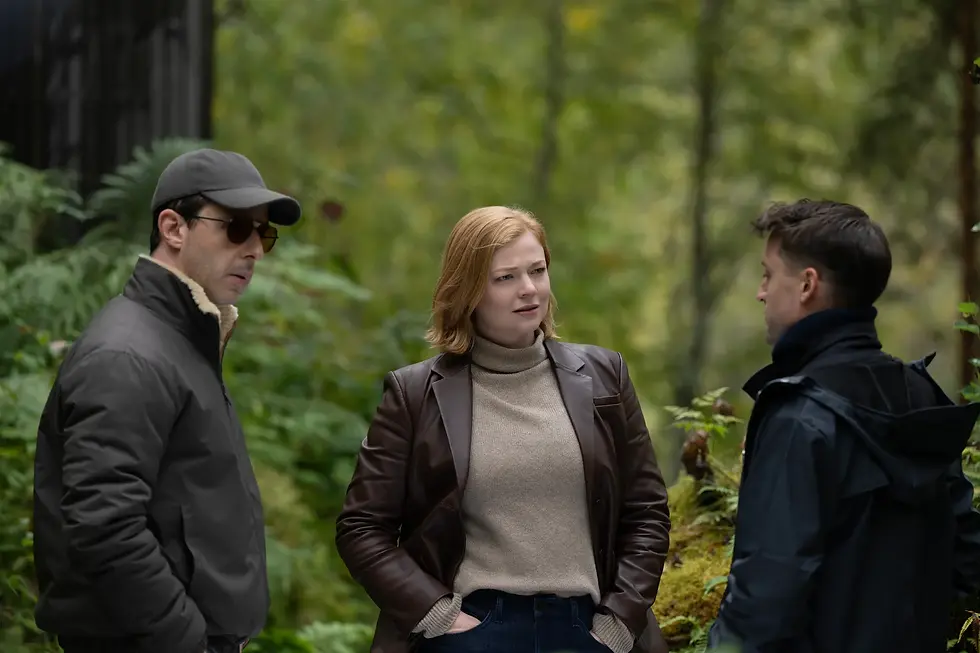Some Delayed Thoughts About 'Ted Lasso' Season 3
- Nicholas Onyeanakwe

- Sep 1, 2023
- 3 min read
If Tony Soprano gave prominence and endearment to the antihero character at the turn of the century, then Ted Lasso deserves a special mention for whatever he is – the opposite of the gruff, cult TV hero. Except, with Tony Soprano, there soon followed a certain Walter White; with Ted Lasso, the nearest replica would probably be eons away (if, of course, one were to exclude SpongeBob SquarePants).

I didn't watch the AppleTV show while it was running as I chose to binge when it was all done, and I can't believe it's been 4 months since. Terrible decision, for my part. The first two seasons are television made after my heart, while the third one struggled to hit some of the sonorous tones set by its predecessors.
The main focus of season 3 was tapped away from Jason Sudeikis' Lasso and handed out to other day players and even guest actors, including Rupert Mannion (Anthony Head), who was well attuned to his antagonist role, Will the Kitman (Charlie Hiscock), Trent Crimm, The Independent (James Lance), Mae (Annette Badland), and newcomer, Barbara (Katy Wix). While this might have shorted the supply of Lasso's wit and humor – everyone's (read: my) favorite part of the show – it simultaneously breathed life into characters who have been mere bodies for the past seasons, and they couldn't have repaid the faith any more than they did.

The longer runtime per episode – up roughly a hundred percent on average since the first season – played a fine supporting role in its struggle, often using the extra minutes dancing around plot lines that drove right into cul-de-sacs and inexplicable character arcs. Still, as the show progressed, episodes seemed to breeze past faster than any of the AFC Richmond players.
Like every game of football, the award-winning series was one of two halves, albeit unequal this time around. Its final four episodes were an effective rinser for the initial eight, which weren't so awful, just a tad tedious. It seems rather logical, too, that the 9th episode – the first of the final fab four – contained a comeback arc (subtle spoiler), an unerring depiction of the series' change in fortune.
Ted Lasso's final season inspires laughter, tears, goosebumps, and hundreds of other emotions in an hour, and its soundtrack makes for the perfect playlist, too. But where it truly excels is where it always has: being a guidebook. Its inspirational quotes and metaphors never stop flowing, regardless of the atmosphere. Yet again, it handles the most difficult of societal issues with the tenderness of a nursing mother, including the usual suspect of mental health, and first-timer homosexuality. It never treats any of its subjects like bait, never placing them front and center in a way that feels like cheap posturing. However, it also doesn’t ignore its grand central themes. An ideal balance.

They say one should leave when the ovation is loudest or live long enough to see one's self become the villain. The latter might have been the fate of Ted Lasso, if not for the turnaround peak in its penultimate episode, "Mom City." It offers a final unraveling of every closed book and a fluffing of the metaphorical cushion for a satisfying end to one of the best comedy dramas of all time. Ted Lasso retains its "feel-good" through each season, and while it might forever be that struggling last kid, all this final season demands is your patience.
All three seasons of Ted Lasso are streaming on Apple TV.
-Nicholas O.
P.S. Given his notorious touchline theatrics, you would think Pep Guardiola would feel at home on set.



Comments